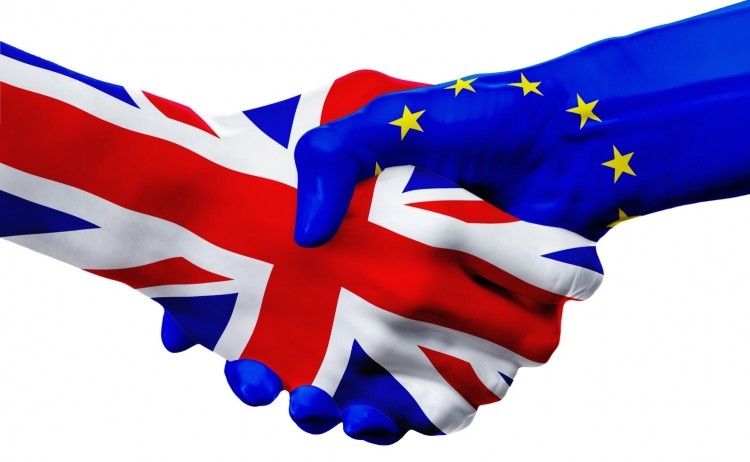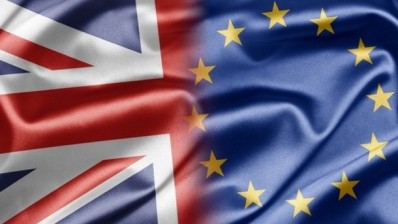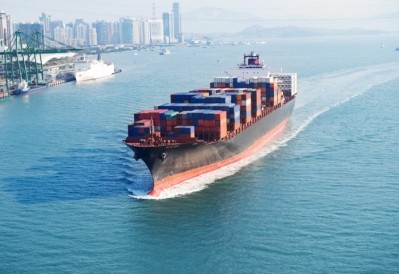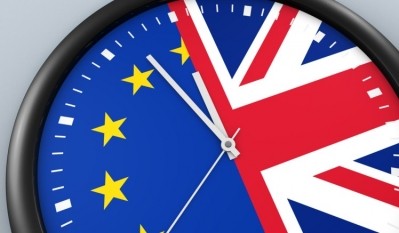Brexit transition deal: food industry reacts

The deal, which will mean the UK leaves the EU on 31 January 2020, has been described as a “decisive and very welcome step” by one trade association boss, with EU citizens already living in the UK to be given the right to remain in the country after Brexit, consultation over fishing opportunities agreed and the UK having the right to agree third-country trade deals.
However, another federation head described the agreement as “far short of an acceptable deal”.
Here's our round-up for industry reactions:
Ian Wright, director general, Food and Drink Federation:
“While it is positive to see how much has been agreed so far, particularly in relation to citizens’ rights, and a time-limited transition period, FDF has long supported a transition period of at least two years. Transition must not be open-ended but its end point will depend on how quickly the nature of our future trading relationship with the EU is confirmed.
“Some food and drink businesses will be ready earlier than two years but transition must not end until the bulk of the industry is ready and we have confidence in the systems on both sides of the Channel. Food and drink manufacturers are now looking for serious reassurance from Government that will not press ahead at any economic cost and that they will be flexible if systems - particularly customs – are not ready in 21 months’ time.
“Similarly, negotiations must avoid a hard border on the island of Ireland, where ingredients, finished products and workers cross the border many times a day. Until the appropriate technological solutions can be found, then the option of a regulatory backstop must be left on the table.
“We hope that European leaders will give the green light on Friday for talks to formally move onto our future relationship with the EU – food and drink’s most important trading partner.”
Nick Allen, chief executive, British Meat Processors Association:
“While this is a step in the right direction the food industry and especially the meat industry needs to know how things are going to happen, the what is going to happen has always been understood. We need to know how the systems will work at the ports so that we can have a frictionless border, we need to know that these systems will be in place at the end of the 21 months. Those are the pieces of information that will give businesses confidence in the future.”
Andrew Kuyk, director general, Provision Trade Federation:
“Today’s news from Brussels will come as a huge relief to the entire food industry. Once enacted this would appear to ensure that during transition, businesses will be able to go on trading with the EU as they do today until it’s time to make any changes necessary for the future partnership and that consumers will be able to benefit from continued access to the full range of safe, affordable and nutritious products that they currently enjoy.
“We understand that there are a number of outstanding points still to be resolved, not least in relation to the land border with the Republic of Ireland. And there is much still to be done to secure a new future relationship with the EU27 which will deliver free and frictionless trade in the longer term.
“But there is no doubt that this marks a decisive and very welcome step towards an orderly exit and a mutually beneficial future deal.”
Minette Batters, president, National Farmers' Union:
“Today’s announcement helps to have a bit more certainty for our farming businesses although clarity on the details is key. There is still outstanding vital information which food and farming businesses need to understand.
“It’s vital that there is a smooth transitional period for the farming industry, avoiding any cliff-edge scenario. This is best achieved by retaining membership of the EU Customs Union until a settled free trade relationship comes into force. The industry needs continuity after the date of withdrawal to ensure that farmers can continue to produce safe, traceable and affordable food and provide other environmental and economic benefits for the nation.
“The NFU has long called for frictionless trade with the EU, free of tariffs and non-tariff barriers. As our largest trading partner - over 70% of our exports of food and non-alcoholic drinks being sent to EU markets - access to the EU must be a top priority.
“We also understand that Government will pay the 2019 BPS scheme on the same basis as now – a welcome assurance for our farmers making business decisions now such as for planting and animal rearing. We look forward to working with Government as it introduces its own reforms to the farm payments system from 2020 - one that supports farms that are profitable, productive and competitive.”
Bertie Armstrong, chief exectuive, Scottish Fishermen’s Federation:
“This falls far short of an acceptable deal. We will leave the EU and leave the CFP [Common Fisheries Policy], but hand back sovereignty over our seas a few seconds later. Our fishing communities’ fortunes will still be subject to the whim and largesse of the EU for another two years.
“Put simply, we do not trust them to look after us. So we issue this warning to the EU: be careful what you do or the consequences later will be severe. To our politicians we say this: some have tried to secure a better deal but our governments have let us down.
“As a consequence, we expect a written, cast iron guarantee that after the implementation period, sovereignty will mean sovereignty and we will not enter into any deal which gives any other nation or the EU continued rights of access or quota other than those negotiated as part of the annual Coastal States negotiations.”
Norman Bagley, policy director, Association of Independent Meat Suppliers:
“At least we now know there is a transitional deal, during which time one expects trade to continue as usual. But this represents a much bigger step in an important process.”















